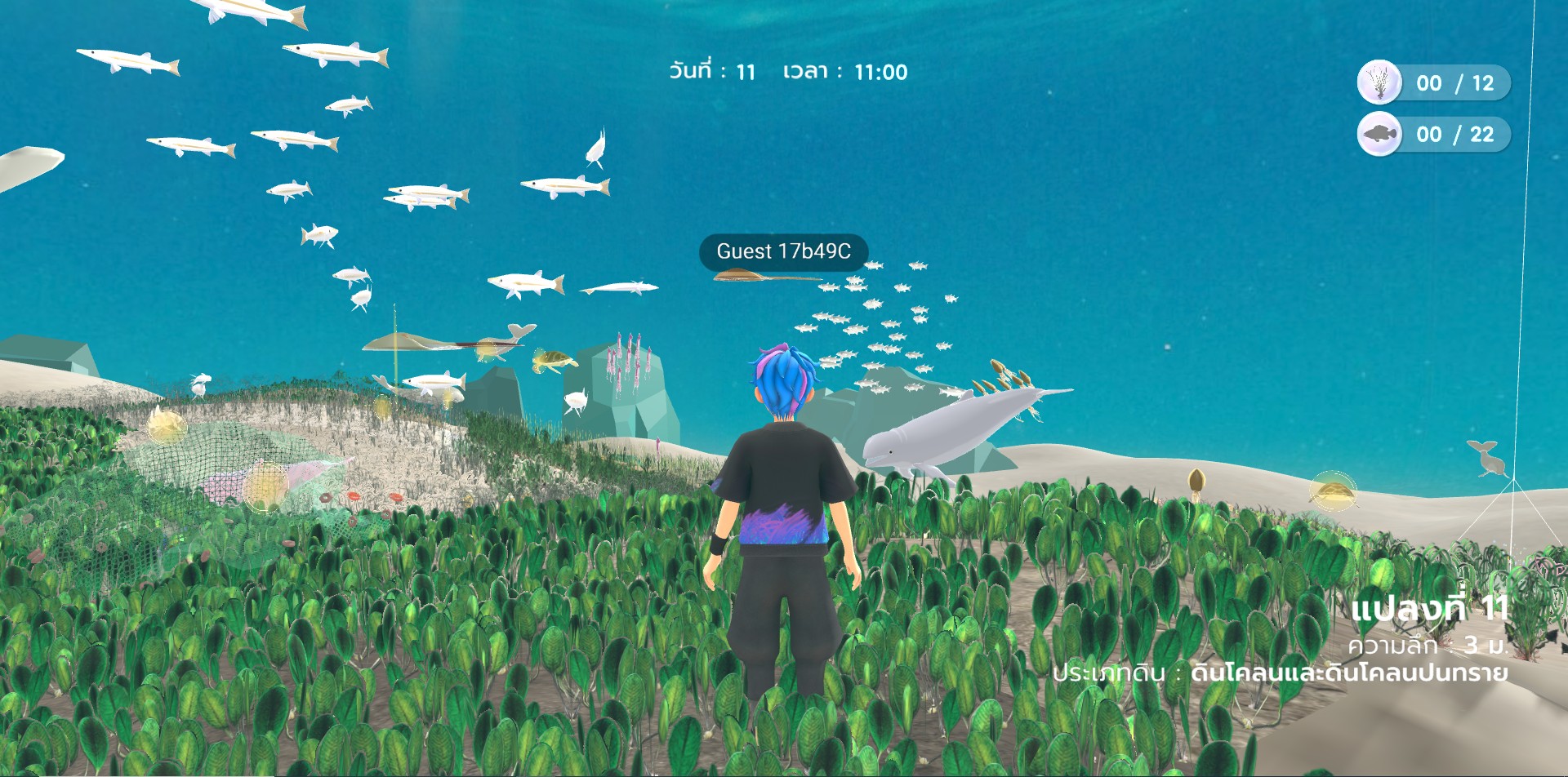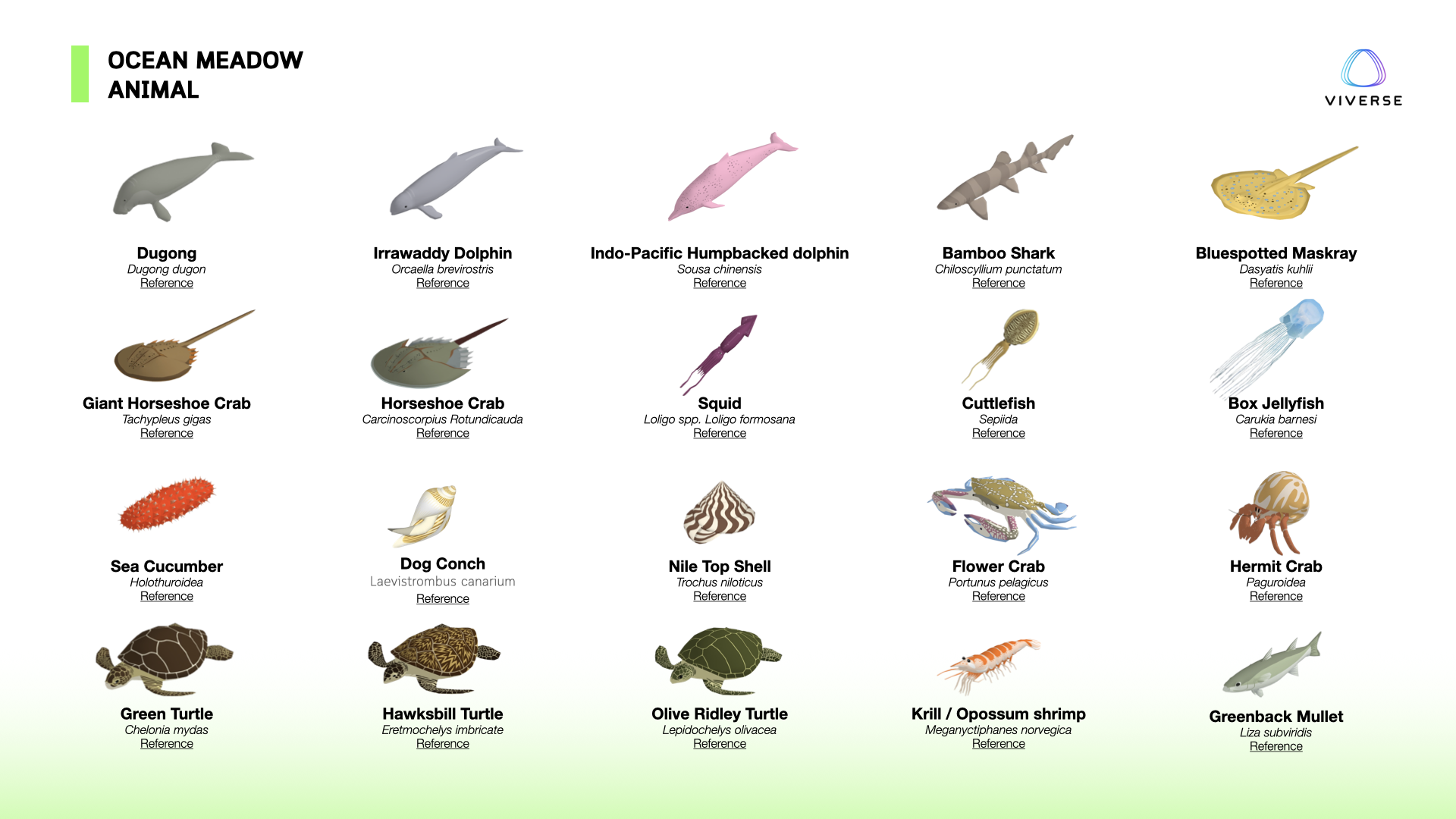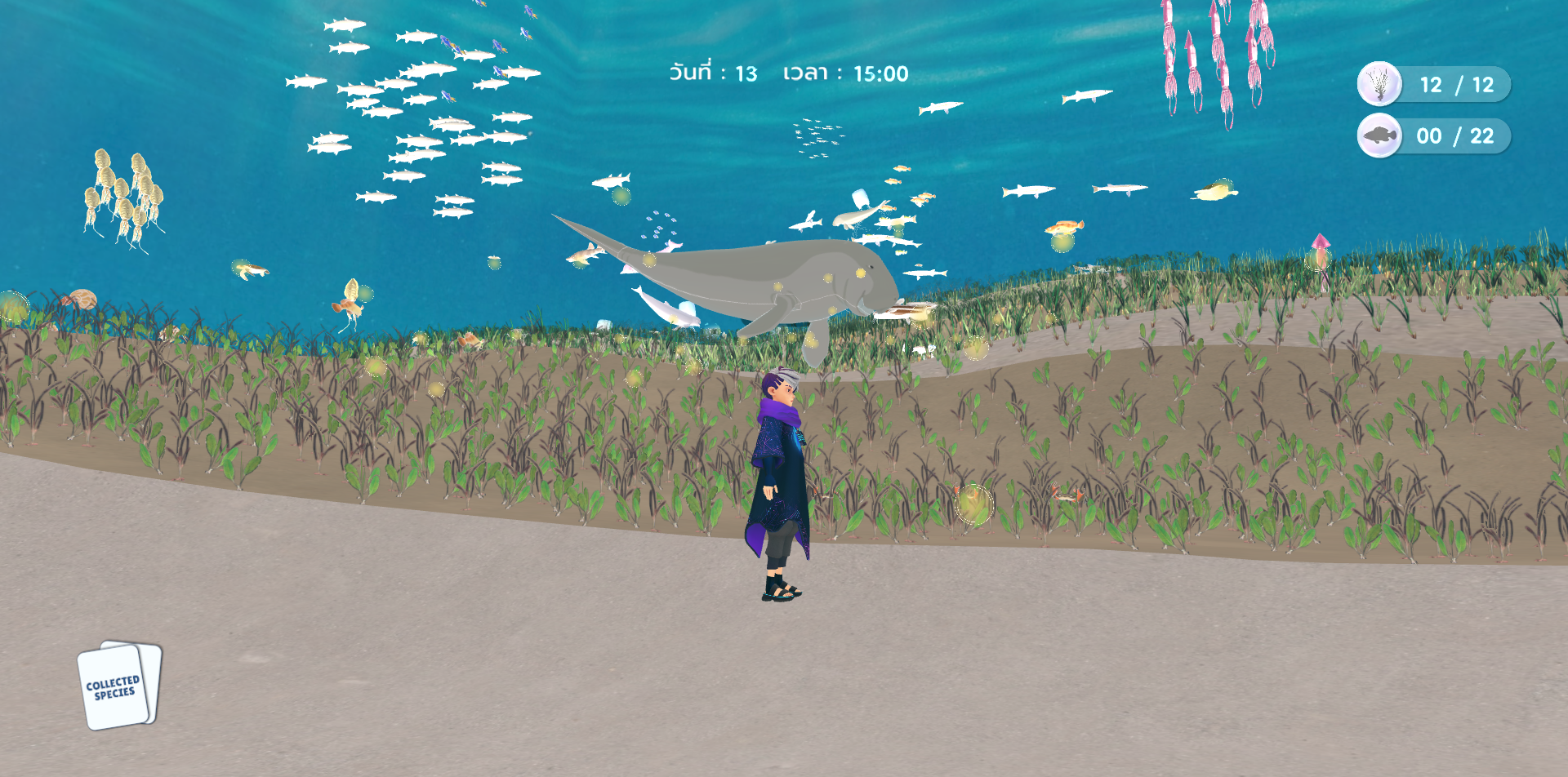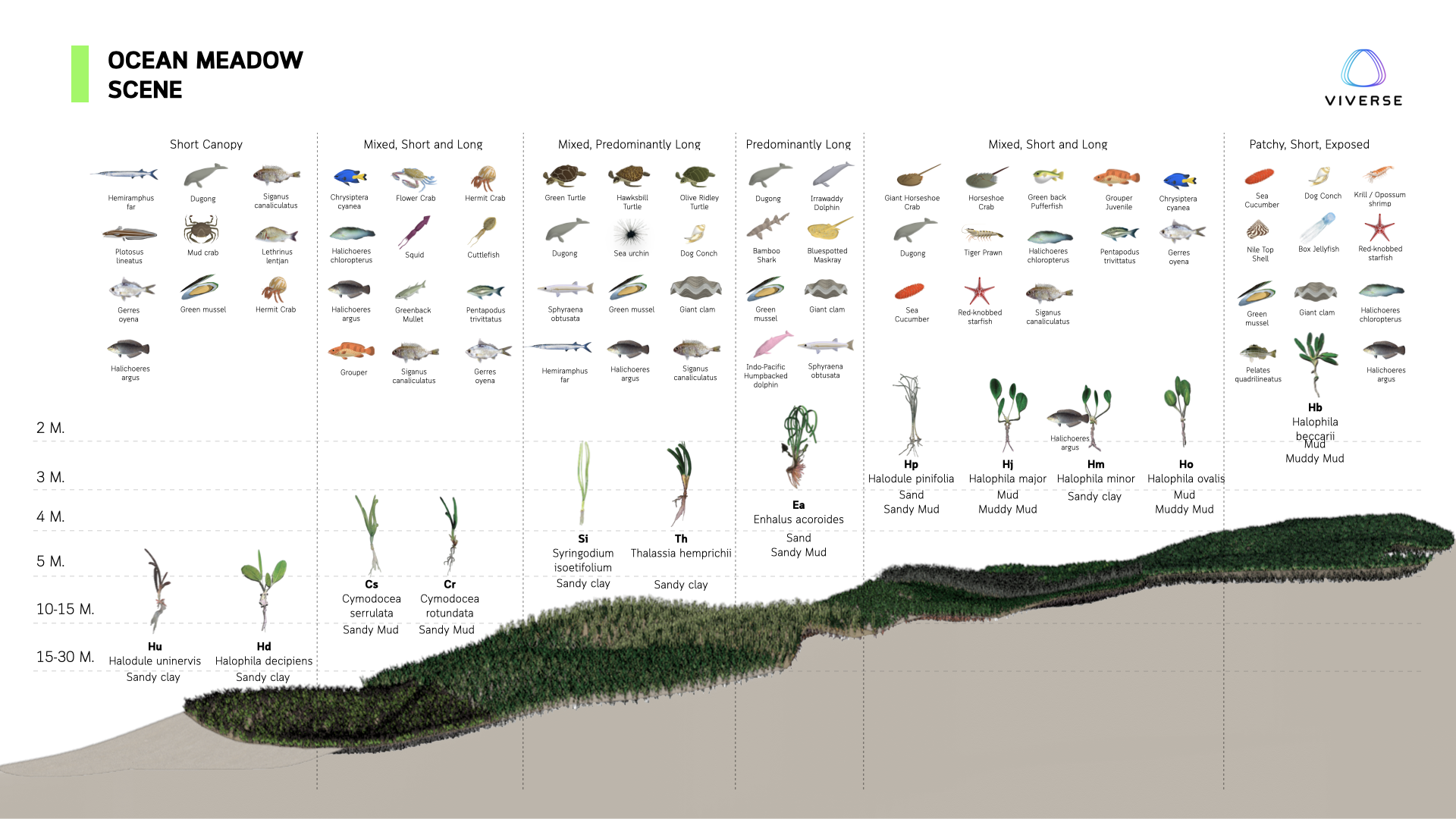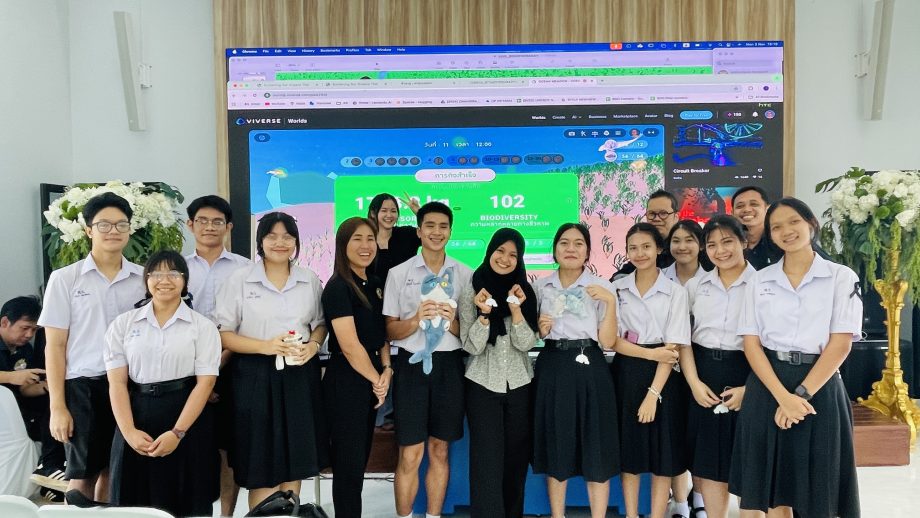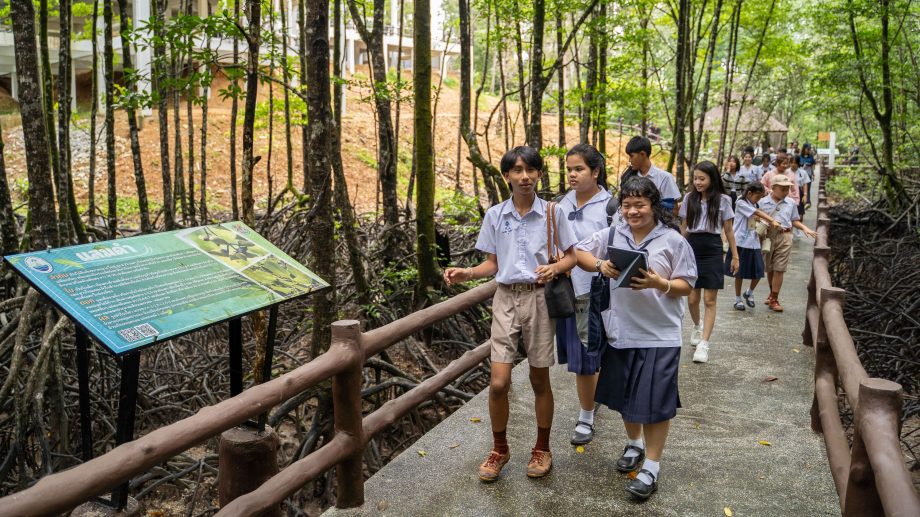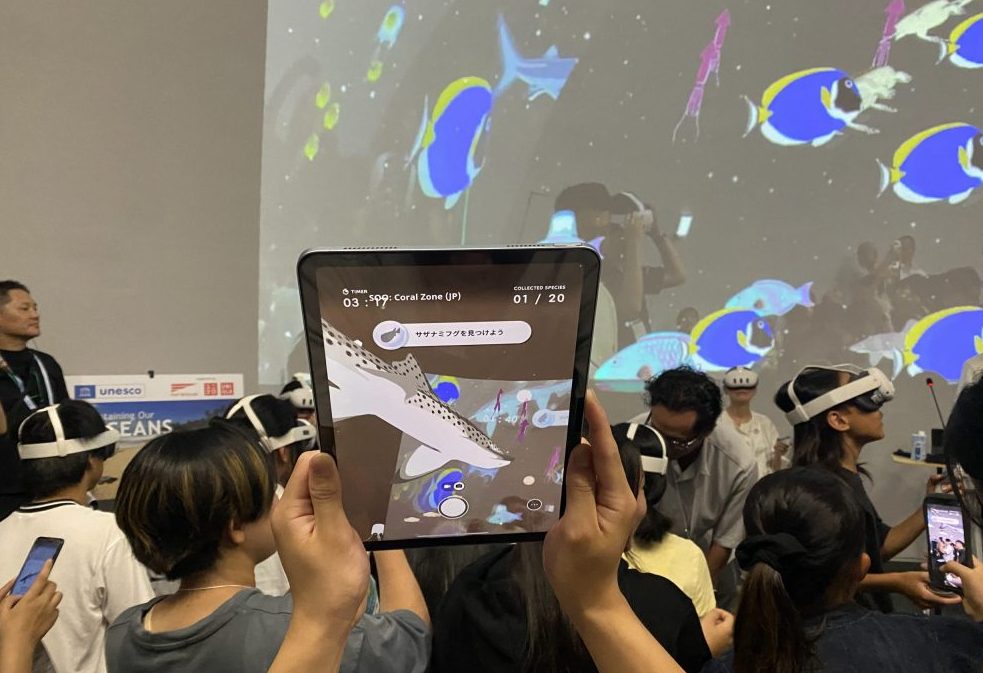Column
November 16, 2025
FabCafe Global Editorial Team
In conversations about combating the climate crisis, we’ve probably all heard about charismatic issues like saving whales or reducing glacial melting and its effects. But just because an issue isn’t widely discussed doesn’t mean it’s unimportant; case in point, the ocean floor, which is far from the daily lives of most people but has a huge role to play in our planet’s climate. How can we engage young people and the public to build awareness of often-overlooked conservation issues?
In Thailand, for example, coastal ecosystems are home to hundreds of organisms like fish and plankton and everything in between. Each organism has an ecological niche carved out over millions of years, and each contributes to an unimaginably complex web of relationships that has sustained itself for countless generations. With so much to learn and understand about these local ecosystems, many of which are perhaps not as charismatic as the Great Barrier Reef or a great white shark, how can educators raise awareness among young people about the challenges in keeping them in balance?
On November 28th, FabCafe Bangkok will debut Ocean Meadow, a new experience within their larger Sustaining Our Oceans project, designed under the VIVERSE Creator Program. Following public tests in early November, this innovative metaverse project will join the SOO project portfolio as a module that takes users into coastal waters near Thailand, exploring and restoring seagrass meadows and the ecosystems they support.
Just as robust meadows and prairies play host to rich ecosystems under open skies, seagrass meadows in coastal waters and estuaries are both habitat and food for a wide array of species wherever they appear. Their impacts reach much farther than the organisms that live among the grasses. Seagrass meadows are important for carbon sequestration, accounting for about one-tenth of the ocean’s stored carbon, despite making up only 0.1% of the ocean floor by area. These amazing ecosystems and their capacity to regulate our climate are currently under threat by human activities.
Ocean Meadow brings the ocean to life in the metaverse, immersing players in seagrass meadows modeled on real scientific research. Replete with 12 species of seagrass found off Thai coasts as well as dozens of fish and other animals, Ocean Meadow creates a realistic model of local ecosystems to show young people the natural wonders in their own backyard.
In Ocean Meadow, restoration begins with awareness. Players explore and observe the underwater environment to understand the ecosystem and factors in seagrass loss, such as plastic pollution or sediment disturbance. They must also pay attention to established seagrass species, learning what kinds of soil and light conditions they need to thrive.
Once they have a grasp on the seagrass meadow ecosystem, players can begin to restore it by cleaning polluted areas and planting seeds in areas appropriate for their species.
Players aren’t alone in the seagrass meadow. Restoring seagrass also attracts fish, turtles, mollusks, and more that depend on the seagrass for food and habitation, enlivening the area and giving the player more seeds. Certain varieties of seagrass also draw dugongs. Dugongs are one of many species that, in the real world, function as nature’s gardeners by spreading seeds through their waste. Players can see their contribution to the ecosystem: dugongs grant bonus seeds as a reward. The more players restore the ecosystem, the more nature helps them in turn.
Ecological restoration is a huge undertaking, and no one person can do it alone. That’s why Ocean Meadow is, at its core, a multiplayer experience. Players can see each other in real time, cleaning, planting, and nurturing meadows together. Progress is shared among players: a cleaner meadow gives more seeds to everyone. Just like ecosystems — and efforts to restore them — thrive through cooperation, players must work together to succeed.
At the end of each session, players get scored based on how many types of seagrasses they planted, how many animal species they brought back to the meadow, and how much carbon their newly restored meadow can hold. This scoring system shows players the link between biodiversity and climate action.
Ocean Meadow was developed under HTC’s VIVERSE Creator Program, an initiative that provides tools and funding for creators interested in crafting immersive, web-based 3D experiences. Using the VIVERSE PlayCanvas extension, Ocean Meadow’s framework allows future users to design their own worlds without any code. In the future, educators and students alike can build on this base to create new experiences and promote conservation.
The seascape players explore in Ocean Meadow is built on real research on Thailand’s coastal waters. The design team referenced work from the Institute of Marine Science at Burapha University and worked closely with Associate Professor Dr. Sunitee Sunitok from Prince of Songkla University as a scientific partner.
Now in its final stages of development, Ocean Meadow has had two public tests on November 3rd (at Ranong Biosphere Reserve) and 9th (at FabCafe Bangkok). Students got to experience a beta version of Ocean Meadow and receive prizes for participating.
-

At the Ranong Biosphere Reserve, students tested Ocean Meadow and took part in quizzes to win prizes.
-

After the test, students toured the Reserve to learn more about their local ecosystem.
Ocean Meadow will be officially released on November 28th, joining FabCafe Bangkok’s portfolio of activities within the Sustaining Our Oceans Project. The SOO Project is a suite of digital educational tools that teach young people in Japan and Southeast Asia about marine conservation. The first tool, an extended reality (XR) module that takes users into a coastal ecosystem, debuted at the Expo 2025 in Osaka, Japan. This initiative is made possible by a partnership between UNESCO and Uniqlo in addition to its parent company, Fast Retailing Co. Ltd.
FabCafe Bangkok offers a diverse range of educational programs, XR experiences, and more through an array of partnerships with global stakeholders. The SOO Program is the latest addition to their lineup, and it’s gaining momentum fast. Interested in partnering with FabCafe Bangkok on the SOO Project or other opportunity? Get in touch via our contact form, and make sure to follow FabCafe Bangkok on Instagram and Facebook for the latest news and updates.
-
FabCafe Global Editorial Team
This articles is edited by FabCafe Global.
Please feel free to share your thoughts and opinions on this article with us.
→ Contact usThis articles is edited by FabCafe Global.
Please feel free to share your thoughts and opinions on this article with us.
→ Contact us

